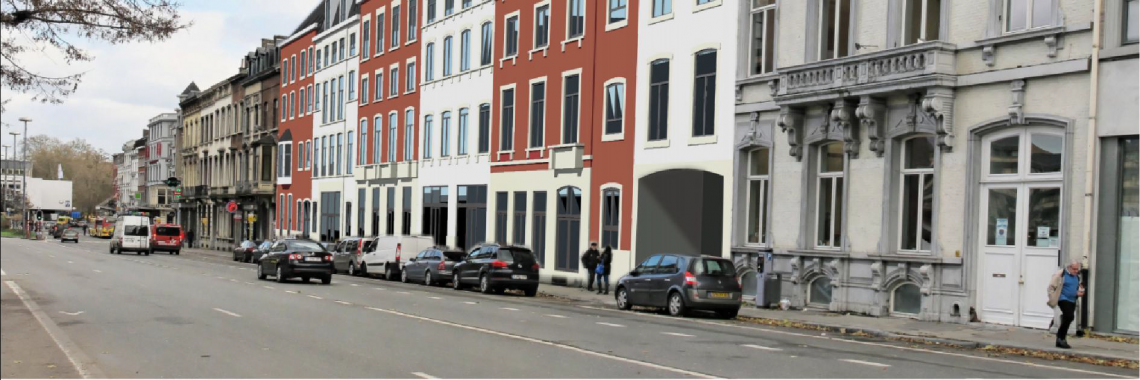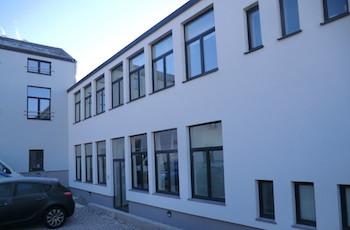
Commitment to Housing
Context
Public housing is housing managed by a public operator that is accredited by Wallonia. There is a broad range of public housing units targeting a variety of users, with rent prices that are lower than market rates. The Social Real Estate Agency offers rent prices that are generally 20 to 30 per cent lower than market rates in order to make housing accessible to people with low income.
In Namur, as in many other cities, all households are not created equal with respect to housing: lower-income residents, families with children, and seniors with limited incomes are on waiting lists for public housing. To meet this demand, Wallonia is requiring communes to reach a quota of 10 per cent public housing. In concrete terms, if a developer creates 10 private apartments, the city must produce one public housing unit in the same timeframe.
Private real estate development therefore implies simultaneous growth in the number of public housing units, and the city is experiencing difficulties in dealing with this alone, as it is subject to other administrative and economic requirements. The city of Namur aims to support dynamic real estate development while making real estate developers its partners to meet the challenge of housing for everyone.
Mission
The Commitment to Housing is a “win-win-win” partnership that aims to:
- meet the challenge of housing for everyone (residents)
- soutenir le dynamisme des promoteurs privés (promoteurs privés)
- accroître le nombre de logements publics selon le quota prescrit par la Wallonie par une démarche simplifiée (Ville)
Implementation
It was proposed that real estate developers commit to renting a part of the housing units created for Namur’s Social Real Estate Agency during discussions prior to the issuance of any urban planning permit. The housing units will then be rented to households for a period of three or nine years. At the end of this period, if he or she wishes, the developer could take back these units or continue the agreement. This guarantees rental for the developer, along with other advantages we’ll look at below.
Based on the principle of equality, anyone who applies for a permit to create one or more housing projects in Namur is affected by the Commitment to Housing. A system of exceptions is also in place for developers who create housing for themselves or their families (up to third-degree relatives). In all cases, the Commitment is discussed with applicants, depending on their possibilities and taking into account all fees associated with their project.
There are many advantages for project developers. Delegating their project to Namur’s Social Real Estate Agency is a profitable and reassuring investment for developers. Even though rents are slightly lower than in the private sector, several advantages make this Commitment attractive, as it is secure and risk-free. Developers can be certain that the rent will be paid, that property taxes will be lower, that they will have a tenant, that the premises will be refurbished and long-term, recovery of an asset in good condition.
If project developers want to sell rather than rent their housing project, they can transfer it to a private investor who will comply with the Commitment to Housing and execute it for them.
In short, the process consists of:
- Contacting the city’s urban planning department to inquire about the feasibility of the project
- Define with them how many and which housing units can be entrusted to a public operator
- Establish a commitment to housing on the city’s form
- Guarantee their commitment to the city
- Introduce the completed urban planning agreement of the commitment
- Acquire the management contract
- Present the contract and collect the deposit
Results
In just one year and a half, 32 housing units were confirmed and 31 are being created.
City
Owner


